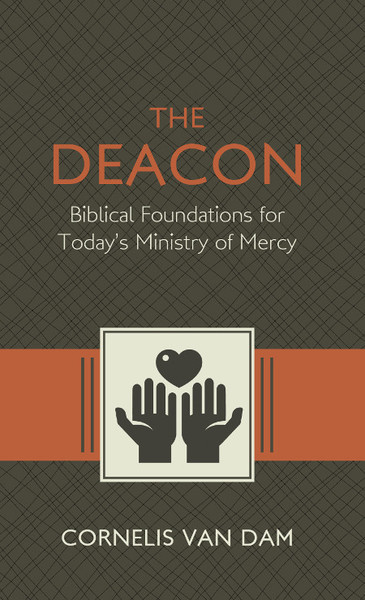
Cornelis Van Dam
Reviewed by: Lendall H. Smith
The Deacon: Biblical Foundations for Today’s Ministry of Mercy, by Cornelis Van Dam. Reformation Heritage Books, 2016. Paperback, 256 pages, list price $18.00. Reviewed by OP minister Lendall H. Smith.
Here is a well-written, biblical, historical, and practical study of the office of deacon from a Reformed perspective. It is a very helpful book for deacons in understanding their office and carrying out a ministry of mercy.
The Old Testament serves as a foundation for a ministry of mercy for the people of God. The whole nation was to care for the poor. The rationale for providing for the poor and needy was their reception of divine love and their delivery from bondage and oppression. The joy of deliverance was to be shared by all, so that “no affliction or want was to bind or hinder them any way in their service to God in the fullness of life.”
The ministry of Jesus was the fulfillment of the Old Testament Scriptures. Christ came as a servant and gave his life as the ultimate act of love to deliver his people from their sins. His teaching is saturated with what it means to love one’s neighbor and to help the poor and needy. The outpouring of the Spirit by the risen Christ on the community of his followers was manifested by their taking “care of each other in loving service for the joy and freedom of the children of God. No poverty or affliction must bind anyone and take that happiness away.” The apostolic appointment of seven men to serve tables in Acts 6 is understood as establishing deacons in their ministry. The attention given to their ordination and service was appropriate for this new position in the church and the division of labor in its ministries of word and deed.
The biblical requirements for deacons express a high view of their office. While affirming that Scripture restricts the office to men, the author notes that the description of Phoebe and the enrollment of widows indicate that women had special tasks in the church. An entire chapter is dedicated to women and the diaconate in the history of the church. This reviewer appreciated the chapter on the role of the diaconate in church history and how the Reformation restored it “more closely to the biblical norms.”
The final section of the book focuses on the functioning of the diaconate in the church today. There is sage analysis and advice here that deals with a variety of diaconal needs. Several key principles are given to guide the deacons in their ministry, both within the congregation and to those outside the congregation, as they have opportunity and ability to do so in conjunction with the gospel. He qualifies this help by saying that it is not the role of deacons “by getting involved in social and political activism to relieve the needs of the poor.” The book concludes by reminding us of the blessing of the poor and the joy that is given to the deacons “of giving not only material help but also the good news of salvation as an encouragement.”
Click here for a second review of this book.
June 29, 2025
June 22, 2025
June 15, 2025
June 08, 2025
June 01, 2025
Anxiety: Finding the Better Story
May 25, 2025
April 27, 2025
The Devoted Mind: Seeking God’s Face in a World of Distraction
© 2025 The Orthodox Presbyterian Church